News
-
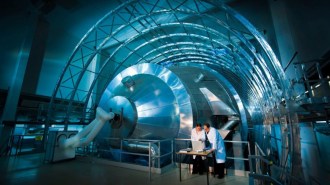 Particle Physics
Particle PhysicsThe already tiny neutrino’s maximum possible mass has shrunk even further
At less than an electron volt, neutrinos are by far the most lightweight massive particles known, a new measurement confirms.
-
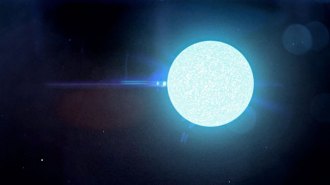 Astronomy
AstronomyNeutron stars may not be as squishy as some scientists thought
NASA’s NICER X-ray telescope finds that the most massive known neutron star has an unexpectedly large diameter.
-
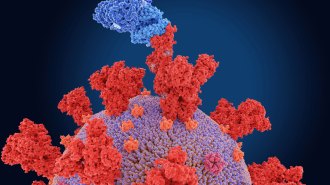 Health & Medicine
Health & MedicineHere’s what we know about B.1.1.7, the U.S.’s dominant coronavirus strain
Studies show the variant is more contagious and may cause more severe COVID-19 overall. But vaccines still work against B.1.1.7.
-
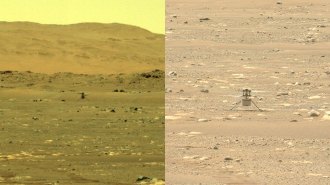 Planetary Science
Planetary ScienceNASA’s Ingenuity helicopter made history by flying on Mars
An autonomous helicopter just lifted itself into the air on Mars, marking the first time a vehicle has flown on a planet other than Earth.
-
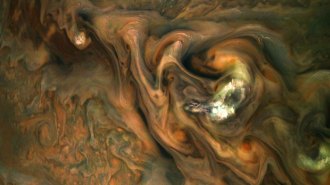 Planetary Science
Planetary ScienceHow the laws of physics constrain the size of alien raindrops
Physics limits the size of raindrops, no matter what they’re made of or what planet they fall on.
-
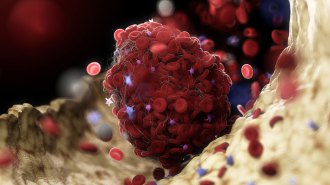 Health & Medicine
Health & MedicinePeople with rare blood clots after a COVID-19 jab share an uncommon immune response
AstraZeneca’s and J&J’s shots are linked to antibodies that spark clots. Knowing that lets doctors ID cases and get patients the right treatment.
-
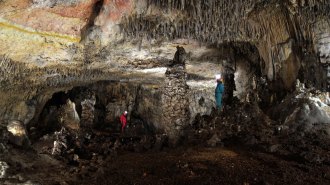 Humans
HumansNeandertal DNA from cave mud shows two waves of migration across Eurasia
Genetic material left behind in sediments reveals new details about how ancient humans once spread across the continent.
-
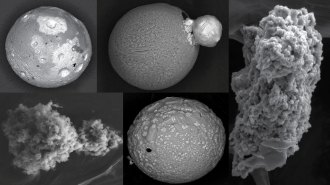 Planetary Science
Planetary ScienceEarth sweeps up 5,200 tons of extraterrestrial dust each year
Thousands of micrometeorites collected from Antarctica come from both comets and asteroids, a new study suggests.
By Sid Perkins -
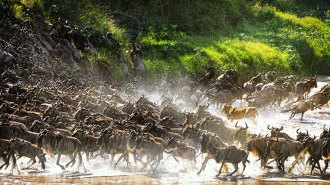 Life
LifeOnly 3 percent of Earth’s land hasn’t been marred by humans
A sweeping survey of terrestrial ecosystems finds that vanishingly little land houses all the animals it used to. Species reintroductions could help.
-
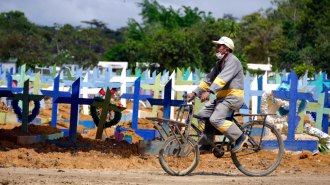 Health & Medicine
Health & MedicineThe P.1 coronavirus variant is twice as transmissible as earlier strains
The variant first found in Brazil can evade some immunity from previous COVID-19 infections, making reinfections a possibility.
-
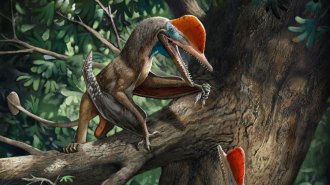 Paleontology
Paleontology‘Monkeydactyl’ may be the oldest known creature with opposable thumbs
A newly discovered pterosaur that lived during the Jurassic Period could have used its flexible digits to climb trees like a monkey.
-
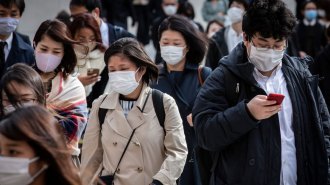 Anthropology
AnthropologyA coronavirus epidemic may have hit East Asia about 25,000 years ago
An ancient viral outbreak may have left a genetic mark in East Asians that possibly influences their responses to the virus that causes COVID-19.
By Bruce Bower